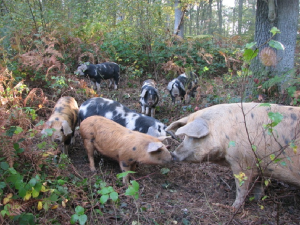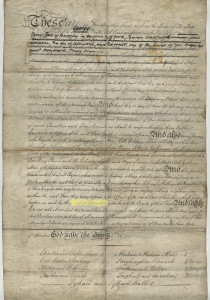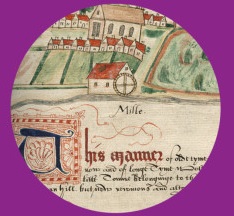The Manorial Documents Register (MDR) records documents produced in the honour courts. An honour is an administrative unit based on a number of manors, the tenants of which owed suit to an honour court in addition to, or in place of, the normal manor court. As explained in one of our earlier blogs the two main types of manor court are the Court Baron and the Court Leet. However there were other smaller courts dealing with specific types of business, these are not recorded on the MDR but it is useful to be aware of their function.

The Forest Court had jurisdiction over woodland and was sometimes called the Woodmote or Swainmote Court. The Court of Pannage dealt with the business of releasing domestic pigs into the forests to feed on acorns, beech mast and chestnuts. This was often a right or privilege given to local people or in some places pigs were customarily presented to the lord of the manor. In some areas of the country a unit of administration existed between the shire and parish, this was called a Hundred and had its own court. In Nottinghamshire, Yorkshire, Derbyshire, Lincolnshire, Northamptonshire and Leicestershire the Hundred Court was referred to as the Wapentake Court.

The Court of Piepowders was held in a borough on the occasion of a fair or market.
This document from the Allendale papers mentions a Court of Piepowder in 1685. The court had unlimited jurisdiction over events taking place in the market and tended to deal with disputes between merchants, theft, and acts of violence. The court was held in front of the mayor and bailiffs of the borough or the steward, if the market or fair was held by a lord. The jury comprised of three or four men and punishment ranged from a fine to the pillory. Trials were short and informal. If the court ruled against the defendant and the defendant could not pay his property could be seized and sold to cover the costs.
These courts existed to administer speedy justice over people who were not permanent residents of the place where the market was held. The name referred to the dusty feet (in French, pieds poudrés) of travelers and vagabonds, and was only later applied to the courts which dealt with such people. Court members themselves also wandered around the fair rather than sitting on a bench often getting their feet dusty in the process. In modern French, the word pied-poudreux is still occasionally used for travelling beggars.

